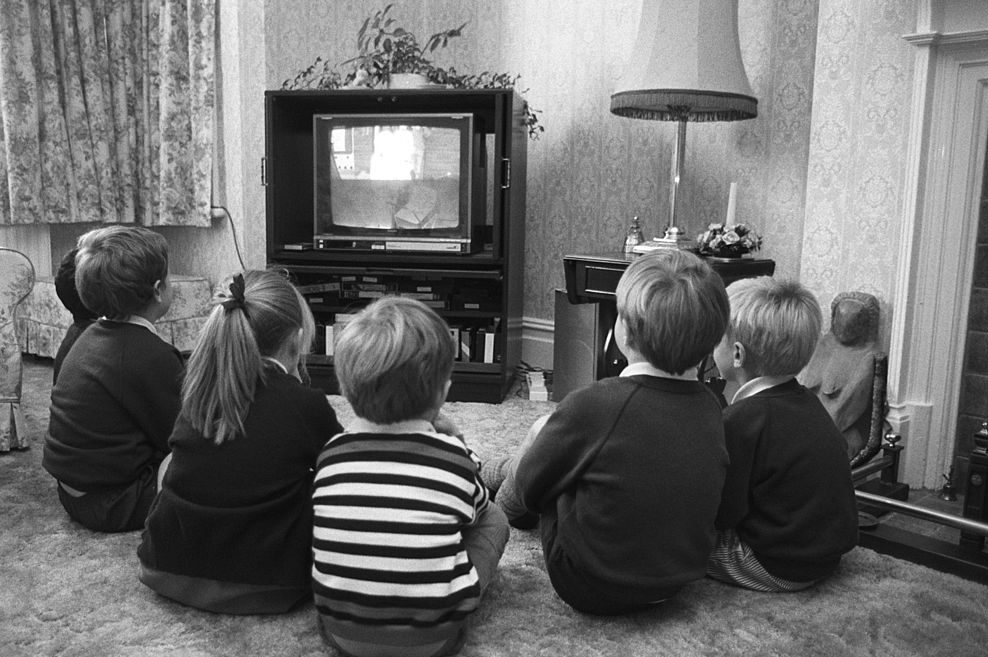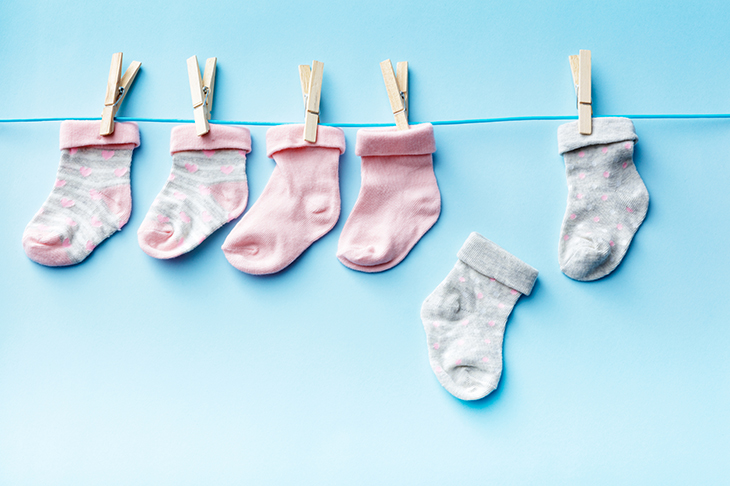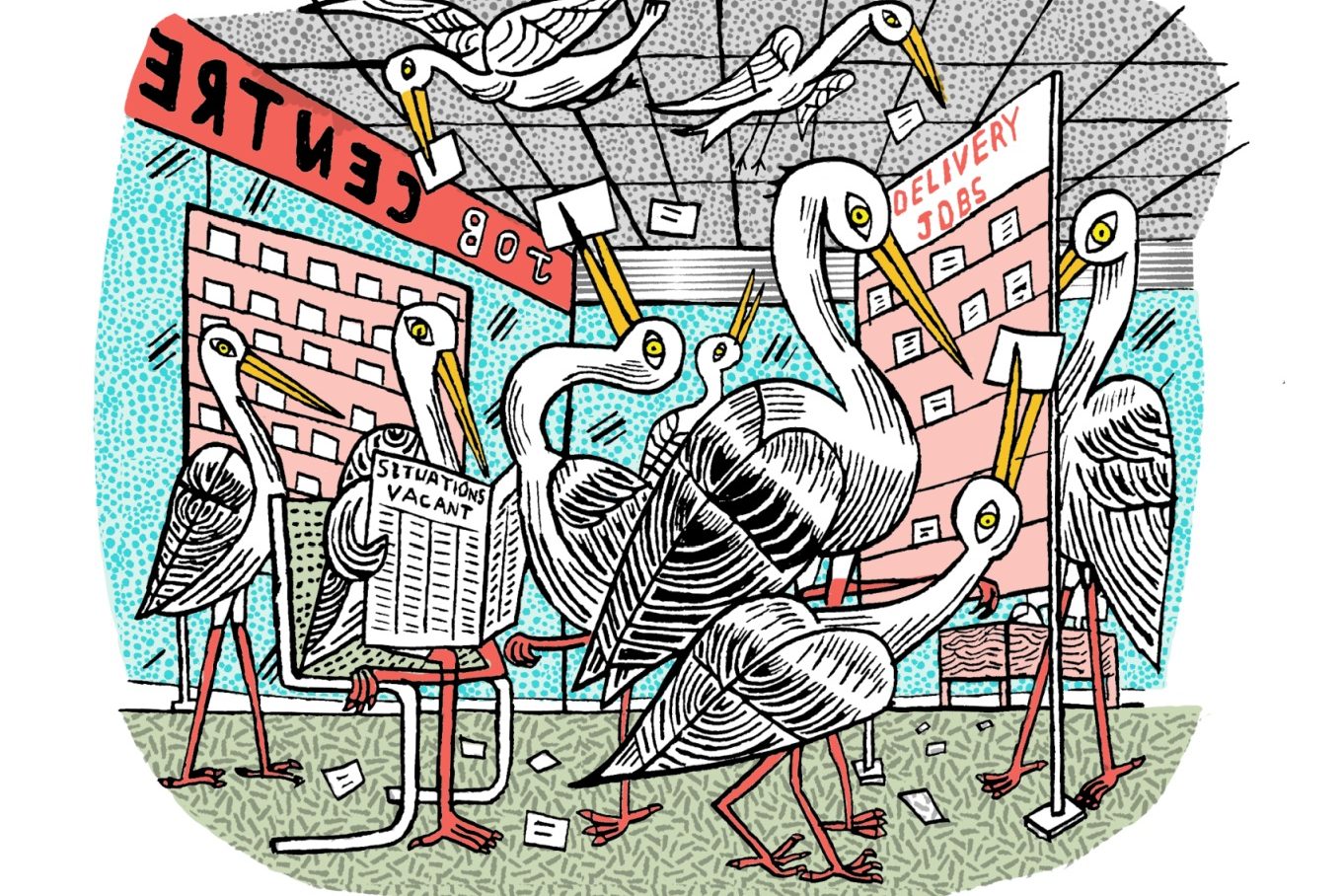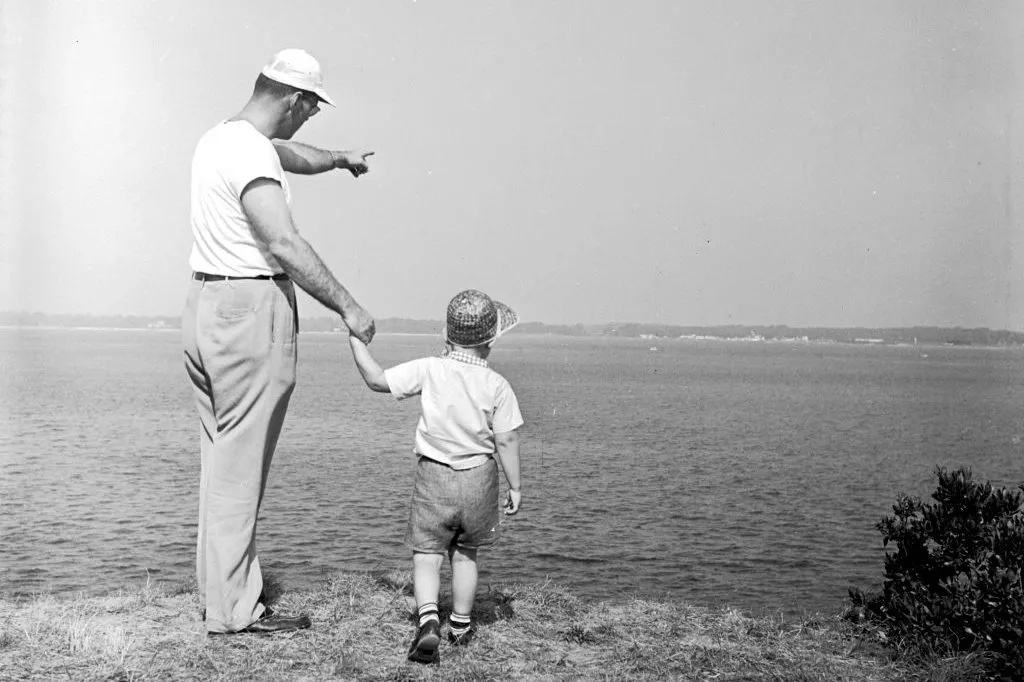When you come from a family of a certain size — in my case, one with eight children — you often get asked: ‘How many kids do you want?’
Innocent on its face, this question is carefully phrased in terms of my personal preferences, and I’m happy to answer: I’ll take what I can get! It’s an easier question every year, because biology has largely made the decision for me. My mother had four kids by the time she was my age, and as of this writing I don’t even have a boyfriend.
Childlessness at 30 has its inadvertent blessings, of course: I get lots of rest and exercise; I spend my disposable income on haircare and loungewear and coffee, and the most stress I regularly endure is over WiFi connectivity. If I want to experience the joy of a child’s company, my nieces and nephews oblige with endless, if slightly overdetermined, games of Old Maid. ‘No boys allowed in Aunt Mary Kate’s apartment!’ my nieces cheer, obliviously.
But lately my childless state has begun to feel less like my own bad luck than a political catastrophe. Perhaps you’ve heard: the American birth rate has cratered below replacement in the last decade, alongside many countries in East Asia and Europe. American women are bearing an average of 1.7 children, compared with the replacement rate of 2.1, and, crucially, the desired fertility rate of around 2.5. American women are marrying later, delaying childbearing and sometimes forgoing it altogether, not always by their own design.
An aging population requires young people to care for it; a growing economy requires new producers and consumers; women, supposedly freed by feminism to follow their bliss, still aren’t getting what they want from their lives. Meanwhile, single women like me might start to feel a bit accused, justifying every bad date to an imaginary panel of demographers, Western Civilization hanging in the balance every time we swipe left.
The declining birth rate coincides with other high-profile family policy debates. The COVID pandemic put the misery of working parenthood in the national spotlight. Now policymakers on the left, right and center all want to address the problems of families — but how? Through childcare allowances, or direct family subsidies? Through mandated parental leave, healthcare and educational reform, or Japanese-style propaganda campaigns to goose fertility? Children and families are the hottest topics in politics, and I can’t help but feel left out. I find myself wondering: am I even entitled to an opinion? I wouldn’t tell my brothers how to discipline their children, or lecture my parenting friends about screentime. Are my opinions on childcare subsidies any less awkward?
I recently chatted about this with a similarly situated conservative friend. We both consider ourselves pro-family and our illiteracy in family policy merely incidental. I don’t know anything about monetary policy, either, and that’s because I don’t have any money. I’m not a priori excluded from debate. But conservatives are more likely to view family policy debates through this normative pro-natal lens: low birth rates are bad, and sound policies, including those that would improve the lives of families, would seek to raise them. In other words, the true success metric of a generous child subsidy like the recent RomneyCare proposal wouldn’t be reduced child poverty or improved health outcomes (though those would be nice). It would be more babies. ‘I have more thoughts on this than I realized,’ my friend added, bristling. Me, too. Do I really want the government to try to solve the problem of my love life?
A liberal girlfriend, on the other hand, rejects the premise of the question: ‘I know I want to have children later, so I consider myself a stakeholder,’ she says. To her, childcare subsidies are like Social Security or unemployment insurance: the life you save may be your own. In an age when identity is so often a qualification for civic participation, whether one happens to be a parent doesn’t need to affect one’s passion for, or credibility on, pro-family positions. The more buy-in for robust childcare subsidies — from men, the childless, the elderly, whomever — the better. This position may be incomplete — people actually do need to have children to stave off societal calamity — but it’s probably a better attitude to take to a first date.
A maximally inclusive approach to pro-family policy may also have reverberating benefits to the childless, beyond better chat over cocktails. Michael Toscano, the executive director of the Institute for Family Studies, reframes my quandary this way: ‘In a healthy society, both parents and those without children would have a valued place, a vital part in the life of our country.’ Today, though, as community bonds wither, nobody is properly valued. Good pro-family policies would restore general health and integrity to society, by ‘strengthening the root relationships that give life to all the others’. Sure, I’m not personally getting child-subsidy checks in the mail, and perhaps I never will, but I still benefit from living in a society that values families enough to support them.
Notwithstanding the bad takes that circulate on social media every few days — libertarians who resent tax dollars going to such undeserving recipients as children, embittered crones and eco-fascists leaving crass comments for one of those influencers with 10 kids and great hair, some dog-whistling birth-rate hawks — I think most people ultimately agree that a good society welcomes kids.
My angst about the political implications of my childlessness may just be oversensitivity. And besides, my lot could change any day, now that the pandemic is behind us. Perhaps reversing ‘no boys allowed in Aunt Mary Kate’s apartment’ will be my first family-policy proposal.
This article was originally published in The Spectator’s August 2021 World edition.

























